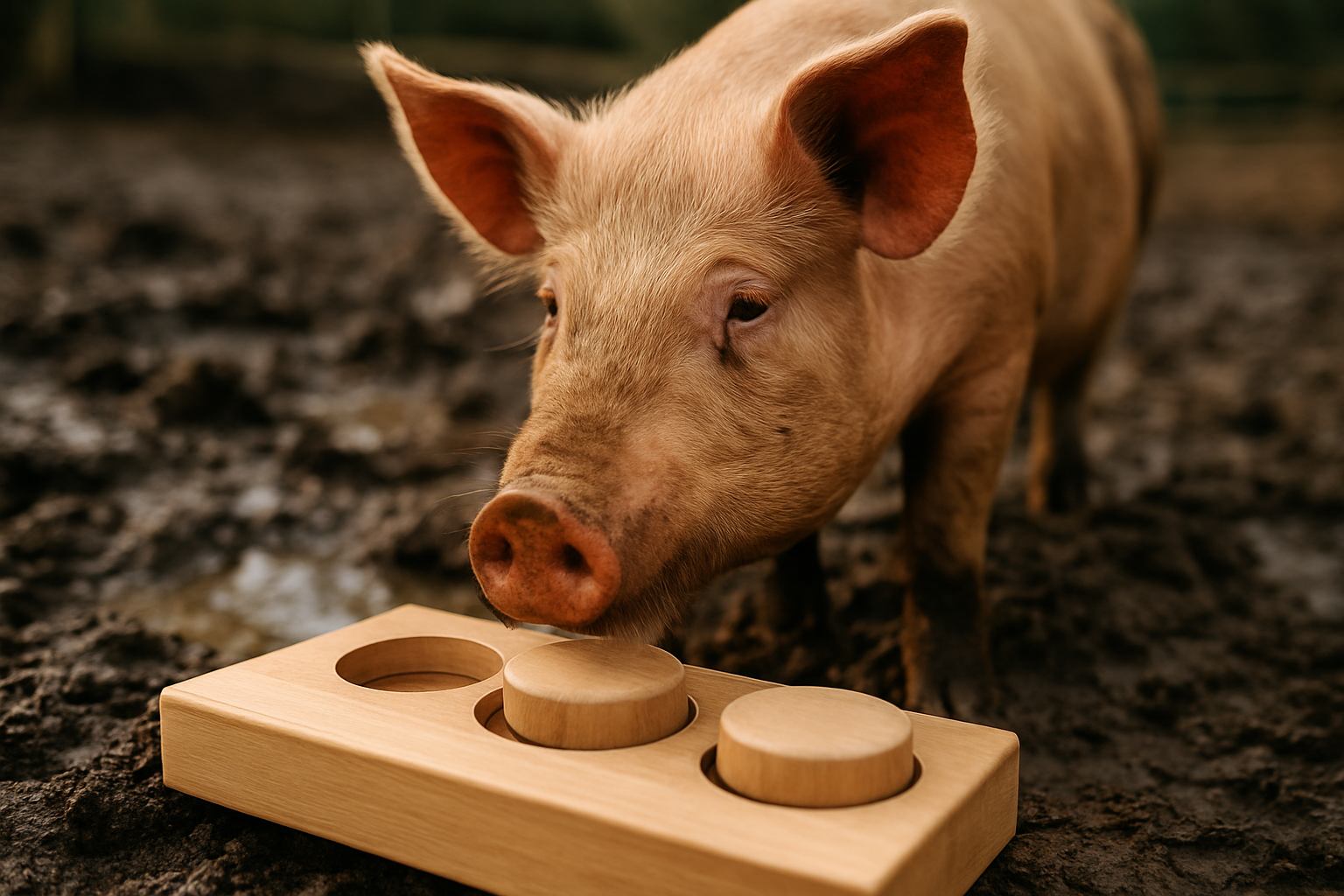The Unexpected Intelligence of Pigs: Unraveling the Truth
Pigs have been part of human society for millennia, often seen in a simplistic light and primarily associated with farming and food production. However, recent developments in animal cognition research have started to unravel a very different narrative, painting pigs as intelligent, emotionally complex creatures capable of much more than we've traditionally given them credit for. This rise in pig cognition appreciation is shifting perceptions, challenging old stereotypes, and prompting us to reconsider our relationship with these remarkable animals.

A Historical Perspective on Pigs
Historically, pigs have been portrayed as dirty, greedy, and unintelligent creatures. This stereotype can be traced back to ancient civilizations where pigs were domesticated for their meat and were often seen wallowing in mud and muck. However, this behavior is actually indicative of their intelligence. Pigs roll in the mud to cool off, as they lack the sweat glands that many other mammals have. This is just one example of how pigs adapt to their environment, showcasing their problem-solving abilities.
The Cognitive Abilities of Pigs
Recent studies have shown that pigs are among the most intelligent animals on the planet. They exhibit problem-solving skills, have a great capacity for learning, and can even understand symbolic language to some extent. Pigs can recognize themselves in mirrors, an ability that is considered a sign of self-awareness and advanced cognitive processing. They also have excellent long-term memories and can remember objects, locations, and other pigs for years.
Emotional Intelligence and Social Behaviour
Beyond their cognitive intelligence, pigs also display high levels of emotional intelligence. They show empathy towards their peers, can form complex social structures, and have been observed displaying a wide range of emotions. Pigs communicate with each other using a variety of vocalizations, and they can recognize the emotional state of their peers based on these sounds. This high level of emotional intelligence is comparable to that of dogs and even some primates.
Pigs in Today’s Society
This newfound understanding of pig intelligence is starting to have a significant impact on how they are treated in society. There is a growing movement pushing for improved welfare standards for pigs in farming, with a focus on providing more stimulating environments that cater to their intellectual needs. Additionally, pigs are increasingly being kept as pets, with many people drawn to their intelligence, personality, and emotional depth.
The Economic Impact of Pig Intelligence
The revelation of pig intelligence has implications beyond animal welfare. It also has the potential to impact the economic landscape of the pet industry and farming. As more people opt to keep pigs as pets, the demand for pig-related products and services is expected to increase. Additionally, improvements in pig welfare standards could lead to higher quality pork products, which could command higher prices in the market.
In conclusion, pigs are far more intelligent and emotionally complex than we’ve traditionally given them credit for. This realization is reshaping our perception of pigs and prompting changes in how we interact with them. The more we learn about these remarkable creatures, the more we must reconsider our relationship with them, ensuring they are treated with the respect and care their intelligence deserves.






